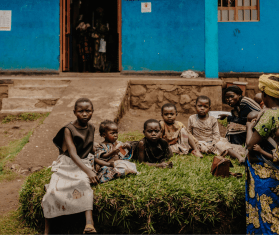In many of the contexts in which MSF works, infrastructure is limited or even nonexistent, presenting challenges in our ability to reach patients. With more than 50 years of experience working in challenging conditions, we’ve worked hard to find ways to deliver what our teams need, wherever needed, when they need it.
For example, in natural disasters, when roads become inaccessible, we can turn to alternative forms of transport such as helicopters or boats. We’re also prepared with tools to deploy rapid relief, which include surgical kits, prepacked relief items, or even entire mobile hospitals.
We also work hard to meet or adapt logistical needs while providing high-quality care. For example, some medicines, such as vaccines and insulin, must be kept cold while they’re transported through jungles or across deserts to reach remote communities. In one joint study, MSF was able to show that a range of insulins could be stored at warmer temperatures without becoming less effective, making it easier for people with diabetes who live in places without reliable access to refrigeration—such as refugee camps and other low-resource settings—to maintain treatment.














